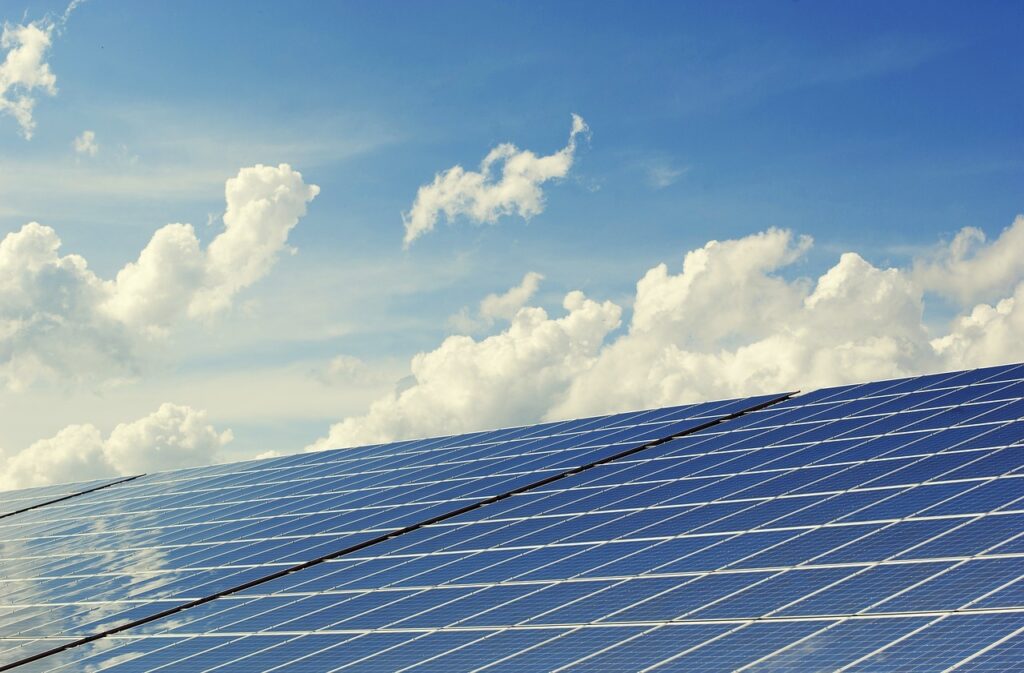Pursuing a sustainable recovery from COVID-19 could boost economic growth, create millions of jobs and reduce greenhouse gases.
The International Energy Agency (IEA) has outlined a number of measures nations around the world should pursue over the next three years to drive a sustainable recovery. These include $3 billion (£2.4 billion) worth of policy actions and targeted investments, or 0.7% of today’s global GDP, made up of both private and public funding.
This would lead to a 1.1% economic growth globally every year, as well as save or create 9 million jobs.
In the Special Report on Sustainable Recovery, put together in cooperation with the International Monetary Fund, the IEA also details how such investment could reduce annual global energy-related greenhouse gas emissions by a total of 4.5 billion tonnes by 2024.
“Governments have a once-in-a-lifetime opportunity to reboot their economies and bring a wave of new employment opportunities while accelerating the shift to a more resilient and cleaner energy future,” said Dr Fatih Birol, the IEA executive director.
“Policy makers are having to make hugely consequential decisions in a very short space of time as they draw up stimulus packages. Our Sustainable Recovery Plan provides them with rigorous analysis and clear advice on how to tackle today’s major economic, energy and climate challenges at the same time. The plan is not intended to tell governments what they must do. It seeks to show them what they can do.”
Globally, there are currently 40 million people directly employed by the energy industry, but 3 million jobs have now been lost or are at risk because of the COVID-19 crisis. There are a further 3 million at risk in related sectors too, such as vehicles, buildings and industry.
The Sustainable Recovery report – which suggests policy changes for electricity, transport, industry, buildings, fuels and emerging low-carbon technologies – suggests that by targeting retrofitting, energy efficiency and low-carbon transport, jobs could be saved or created.
Beyond jobs, a key focus for the report is increased investment, targeting a 40% increase in investment in electricity transmission grids in particular. As the “backbone of secure and reliable power systems”, strengthening capital investment in them after years of decline would help make energy systems more resilient and help drive a broader switch to renewables.
The call for increased investment follows a recent report by the IEA that suggested COVID-19 would lead to a 20% drop in investment in the global energy sector. As such, a strong policy framework, with green energy at its core, will be key going forwards to kickstart growth.
Finally, the report focuses on the continued drive to lower emissions, highlighting the key role clean energy can play and the unprecedented position the world is now in, with emissions falling due to the COVID-19 crisis.
Dr Birol continued: “This report lays out the data and analysis showing that a cleaner, fairer and more secure energy future is within our reach. The Sustainable Recovery Plan would make 2019 the definitive peak in global emissions, putting them on a path towards achieving long-term climate goals.”
“The IEA is mobilising its analytical resources and global convening power to bring together a grand coalition that encompasses government ministers, top energy industry CEOs, major investors and other key players who are ready to pursue a sustainable recovery that will help steer the world onto a more resilient trajectory.”
In the UK, the call for a green recovery has been echoed by energy sector groups, businesses and charities, and has led to secretary of state for business, energy and industrial strategy Alok Sharma hosting a roundtable on the subject last week (10 June).





